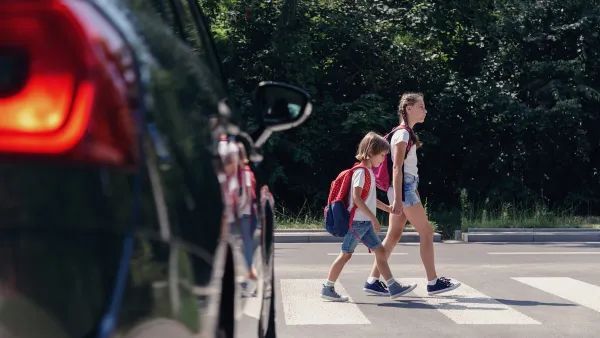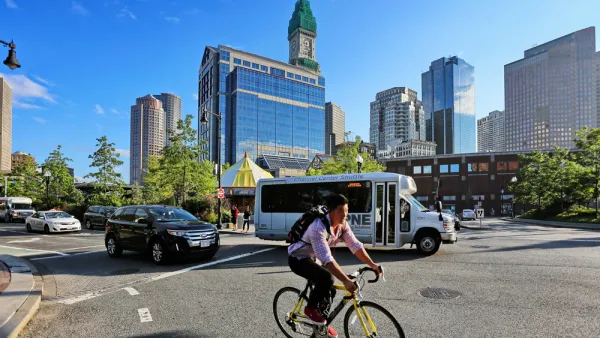Guidance from federal agencies encourages states and cities to focus on pedestrian and cyclist safety, but the Biden administration has stopped short of any legally binding mandates.

As part of the 2021 infrastructure law’s call for states to assess road safety and identify strategies for protecting vulnerable road users, the Federal Highway Administration (FHWA) is encouraging states to collaborate more closely with local governments on efforts to make roads safer for pedestrians, cyclists, and others. According to an article by Daniel C. Vock for Route Fifty, “As part of the infrastructure law, states must compile data on vehicle crashes involving non-motorists. They also are required to track demographic data about the people killed in those crashes, and in the areas where the crashes occurred.”
Vock continues, “The highway agency’s 19-page guidance document fleshes out how states can comply with the new reporting mandate. But the recommendations do not have the force of law.” The Biden administration continues to push safety as a key factor that should drive transportation policy moving forward. According to Transportation Secretary Pete Buttigieg, “Not just dedicated highway safety dollars but every penny [of state transportation funding] could and should do something about transportation safety.”
The agency’s guidance document encourages states to use a variety of available sources, such as local governments, to gain a more complete understanding of traffic safety issues and the most dangerous roads and intersections.
FULL STORY: Feds Call for State-Local Cooperation on Pedestrian and Cyclist Safety

National Parks Layoffs Will Cause Communities to Lose Billions
Thousands of essential park workers were laid off this week, just before the busy spring break season.

Retro-silient?: America’s First “Eco-burb,” The Woodlands Turns 50
A master-planned community north of Houston offers lessons on green infrastructure and resilient design, but falls short of its founder’s lofty affordability and walkability goals.

Delivering for America Plan Will Downgrade Mail Service in at Least 49.5 Percent of Zip Codes
Republican and Democrat lawmakers criticize the plan for its disproportionate negative impact on rural communities.

Test News Post 1
This is a summary

Test News Headline 46
Test for the image on the front page.

Balancing Bombs and Butterflies: How the National Guard Protects a Rare Species
The National Guard at Fort Indiantown Gap uses GIS technology and land management strategies to balance military training with conservation efforts, ensuring the survival of the rare eastern regal fritillary butterfly.
Urban Design for Planners 1: Software Tools
This six-course series explores essential urban design concepts using open source software and equips planners with the tools they need to participate fully in the urban design process.
Planning for Universal Design
Learn the tools for implementing Universal Design in planning regulations.
EMC Planning Group, Inc.
Planetizen
Planetizen
Mpact (formerly Rail~Volution)
Great Falls Development Authority, Inc.
HUDs Office of Policy Development and Research
NYU Wagner Graduate School of Public Service





























